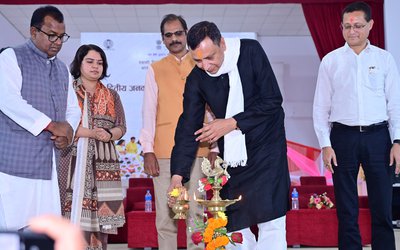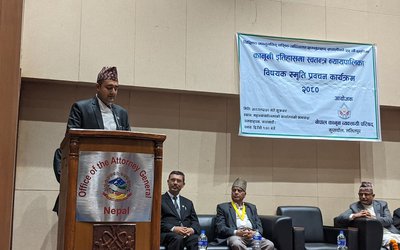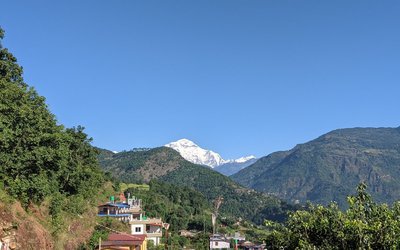A division bench of Chief Justice Khil Raj Regmi and Justice Kalyan Shrestha nullified the decision of the Special Court which had, on grounds that ex-post facto laws were not applicable, dismissed the corruption charges against two former police chiefs Moti Lal Bohara and Achyut Krishna Kharel.
The two senior-most judges said that in corruption cases, the rule of retrospection did not apply and directed the Special Court to initiate hearings on the ex-police chiefs from the initial phase.
The court’s decision has sent a wave of debates in the legal sector. This is not the first case when Nepal’s Supreme Court supported retrospective laws. Former chief justice Ram Prasad Shrestha even publicly declared that he sent former minister Chiranjibi Wagle to prision not citing the law but on his dream or dialogue with the god.
"Ex-post facto laws are against natural rights and no one can prescribe these,” said former attorney general Sushil Panta. “This is equally unjust both in civil as well as criminal cases.”
Many say right does not justify the doing that is wrong. However, this is not true in Nepal’s context.
Article 25 of the American Declaration of the Rights and Duties of Man provides in part that "[n]o person may be deprived of his liberty except in the cases and according to the procedures established by pre-existing law."
The right to be tried in accordance to "pre-existing law" is reiterated in article 26.
Similarly, most European states, and all European Union states, are bound by the European Convention on Human Rights. Article 7 of the convention mirrors the language of both paragraphs of Article 15 of the International Covenant on Political and Civil Rights, with the exception that it does not include that a subsequent lighter penalty must apply.
In the United Kingdom, ex-post facto laws are frowned upon, but are permitted by virtue of the doctrine of parliamentary sovereignty. Historically, all acts of Parliament before 1793 were ex-post facto legislations, in as much as their date of effect was the first day of the session in which they were passed.
Retrospective criminal laws are prohibited by Article 7 of the European Convention on Human Rights, to which the United Kingdom is a signatory, but several noted legal authorities have stated their opinion that parliamentary sovereignty takes priority even over this.
Article 24 (4) on Rights regarding justice of Interim Constitution 2006 says no person shall be punished for an act which was not punishable by law when the act was committed, and no person shall be subjected to a punishment greater than that prescribed by the law in force at the time of the offence.
However, the Supreme Court bench headed by two senior judges even rejected the constitutional provisions showing the court, which failed to clean itself on many scandals, entered the areas crossing its constitutional limit.
Laws should never be considered as applying to cases which arose previously to their passage, unless the legislature has clearly declared such to be their intention. Ex Post Facto Laws are regulations that are created "after the fact".
These laws are created to convict a person of a crime, even though what they did was not considered illegal at the time. It calls for a law to be created which will criminalize an act after it has already occurred to allow for a higher level of punishment for the people who have charges brought against them or to ensure that an individual or group will be convicted of a crime. When these laws are created, a person is allowed to be punished for an action that had been legal at the time.
However, Nepal’s Supreme Court opens a new legal course by allowing to take action on the basis of retrospective laws.
- TANAHU HYDROPOWER PROEJCT: A Significant Achievement
- Apr 15, 2024
- AMBASSADOR HANAN GODAR: Sharing Pain With A Nepali Family
- Mar 30, 2024
- VISIT OF KfW AND EIB TO NEPAL : Mission Matters
- Mar 25, 2024
- NEPAL BRITAIN SOCIETY: Pratima Pande's Leadership
- Mar 24, 2024
- NEPAL ARMY DAY: Time To Recall Glory
- Mar 15, 2024















